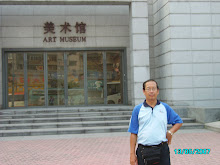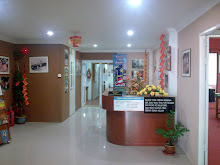In the wake of the melamine-tainted milk scare, several consumers have urged the authorities concerned to carry out regular inspections and lab tests all China-produced foodstuff sold in Sarawak.
“Ingredients of locally made and imported food stuff must be thoroughly checked from time to time,” said a consumer, Chee Ying in an interview with The Borneo Post here yesterday.
Foodstuff from China are widely sold in shops and supermarkets in Sarawak. They range from canned food (fruits, pickled vegetables and processed pork) to biscuits and sweets.
Ying said China has a reputation for imitation goods so the authorities in the state must be vigilant.
Another consumer, who only wished to be known as Toh, said her family never buy China-produced tinned stuff since the republic was known for tampering with ingredients in some of its products.
“The market is very competitive and there is bound to be some unscrupulous businessmen. If you go through China’s record of court cases, there are a lot of cases involving food safety,” she said.
“Now the scandal revolves around milk and some dairy products. As a consumer, I am also worried about other products made in China like shampoo. Do we have China-made shampoos and are they safe to use?” she asked.
A grocer, who only wished to be known as Kueh, said China’s milk scandal had caused some customers to be more careful when shopping. They now read the wordings on tins and packages of food to find out the country of origin.
“People are still buying tinned food from China like processed pork because these are not related to milk. My shop didn’t experience a drop in the sale of tinned food,” he observed.
He conceded however that he knew of a customer who disposed of all of her tinned foodstuff after the news about melamine-contaminated milk.
With milk as the main ingredient in ice-cream, the sale of ice-cream had been slightly slow, he admitted but assured that it was safe to eat.
He said the manufacturer of Wall’s ice cream sent a circular to all retailers, confirming that their milk and the powder used in the product were sourced from Australia, New Zealand, Europe or America.
“Come to think of it, how do you define something that is safe to eat these days?
“Some food sold at eateries are not prepared hygienically yet people still patronise them everyday,” he said.
Kueh said his shop only sold Malaysia-made biscuits while imported ones were produced by reputable companies like Danone and Kraft.
“Big companies have stringent food safety measures and will not risk doing something that will tarnish their brand name, which took years to establish,” he pointed out.
Kueh said the toxic milk scare should serve as a wake-up call to governments around the world to be stringent in food safety surveillance.
“Checking once or twice is not enough but should be on a regular basis,” he said, adding that authorities did not have to wait for more deaths before springing into action.
A company director Penghulu Pui Sing Min said his supermarkets did not record a slowdown in China-made foodstuff following the tainted-milk scare.
“First of all, we do not sell China-produced milk powder and baby formula. Secondly, most of our food items are produced in Malaysia,” he revealed.
He said only a handful of tinned food was imported from China but had not been listed by the government as unsafe for consumption.
As a responsible businessman, he assured that he would keep himself updated on the latest development concerning the tainted-milk scare, and immediately remove any item banned by the Malaysian government.
Monday, September 29, 2008
Subscribe to:
Post Comments (Atom)



.jpg)

No comments:
Post a Comment